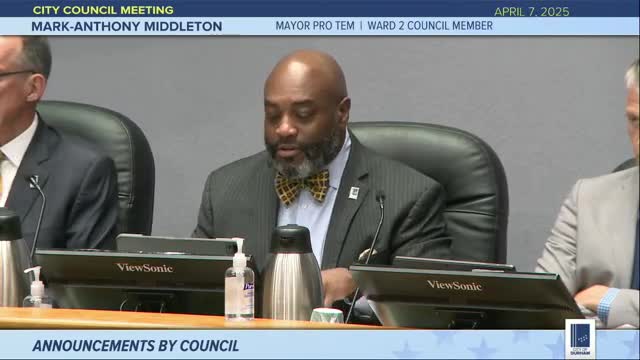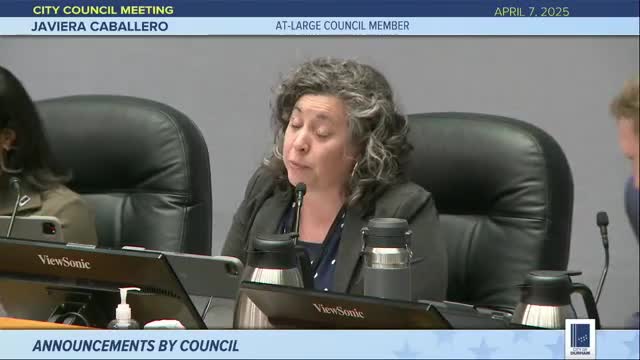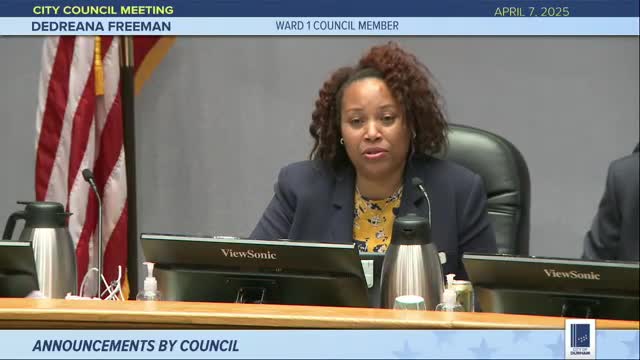Article not found
This article is no longer available. But don't worry—we've gathered other articles that discuss the same topic.

Durham council rejects Sheffield Farms annexation after hourslong hearing

Votes at a glance: Durham City Council, April 7, 2025

Council accepts multiple new streets and infrastructure for city maintenance; residents ask about long‑term costs

